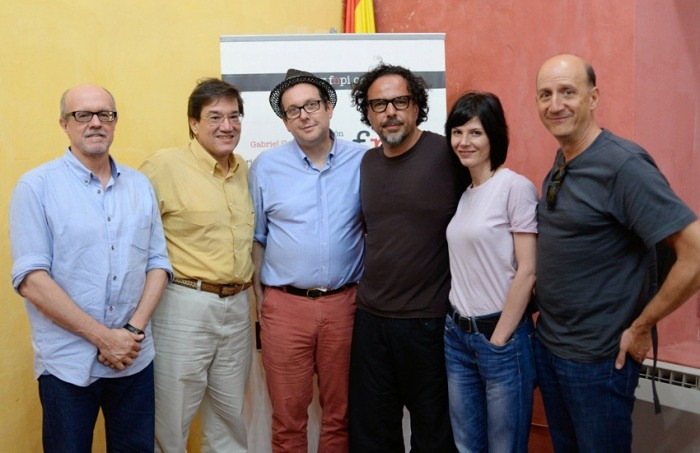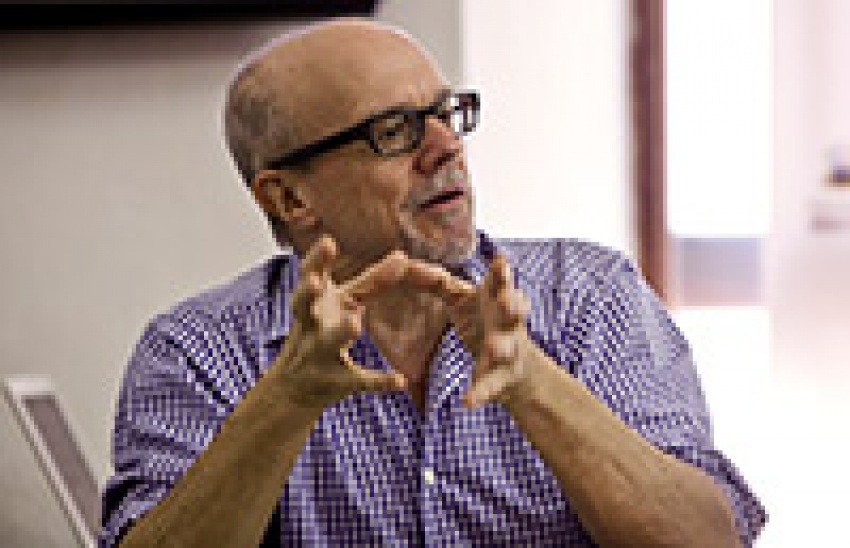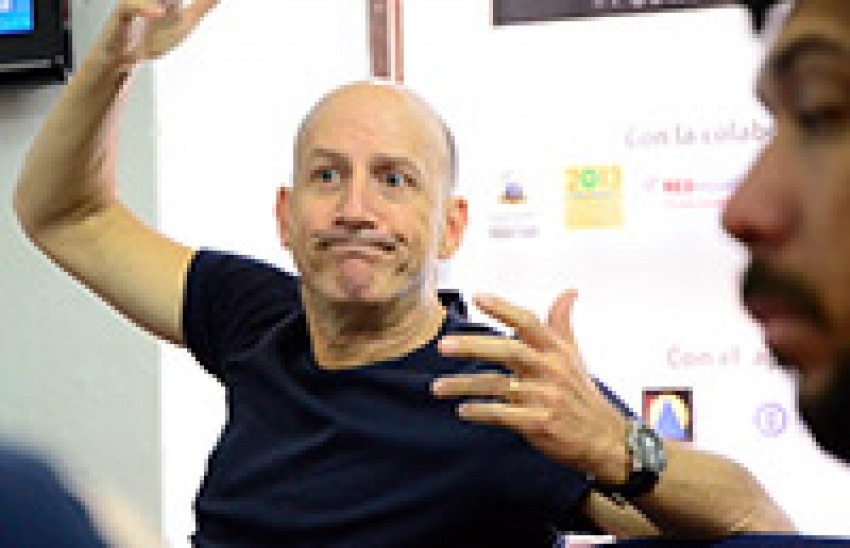
Masters
 Héctor Feliciano
Héctor Feliciano
Héctor Feliciano currently writes for the Spanish newspaper El País. He has been a cultural correspondent for the American papers the Washington Post and Los Angeles Times. In Paris, he was the editor in chief of World Media Network—a press syndicate gathering European newspapers—and the artistic director of the Paris City Hall’s Cultural Affairs Office.
His book The Lost Museum: The Nazi Conspiracy to Steal the World’s Greatest Works of Art shows the breadth and depth of his investigative journalism, reason for which he was awarded the prestigious National Arts Journalism Fellowship Program (NAJP) by the University of Columbia, in New York. Feliciano has also been part of a working group at the Columbia University School of Journalism to develop the journalism curriculum. He has a bachelor’s degree in history and art history from the Brandeis University, a masters from the Columbia University School of Journalism, and a doctorate in literature from the University of Paris.
 Jonathan Levi
Jonathan Levi
Following graduation at Yale University, Jonathan Levi received a Mellon Fellowship to study at Cambridge University, where in 1985 he cofounded the literary magazine Granta and served as U.S. editor for the journal called “quite simply, the most impressive magazine of its time” by the Daily Telegraph.
After leaving Granta, Levi divided his time between writing and producing. His 1992 novel, A Guide for the Perplexed, has been reviewed by the New York Times Book Review, the Washington Post, and Newsday, among other international publications.
Levi’s short stories and articles have appeared in many magazines, including Granta, Condé Nast Traveler, GQ, Terra Nova, the Nation, and the New York Times. Since 1997, Levi has served as a contributing writer for the Los Angeles Times Book Review.
Levi currently divides his time between New York and Rome, where he writes on arts and travel for the International Herald Tribune and Condé Nast Traveler. He serves an advisor for the Cartagena Music Festival and the Zaubersee Festival in Luzern, Switzerland.
Guest masters
Fernanda Solórzano
Fernanda Solórzano is a film critic, essayist, and editor with a bachelor’s degree in Latin American Literature from the Universidad Iberoamericana. From 1995 to 1999 she was the managing editor of Viceversa magazine, from 2000 to 2002 the head of information of El Universal’s weekly Día Siete, and from 2002 to 2005 the coeditor of Letras Libres magazine.
From 1996 to 2001 Solórzano was head film critic for Unomásuno Saturday supplements, Cambio magazine, and El Universal’s supplement Confabulario. On radio she has contributed to BBC programs The Ticket and On Screen. Solórzano has also conducted TV programs Filmoteca 40, Confabulario, and El Foco for Proyecto 40 and Encuadre and Entrelíneas for Canal 22.
In 2007 she was jury in Short Shorts Film Festival México and the Morelia International Film Festival (short film section), in 2008 in the Monterrey International Film Festival (feature film and documentary sections), in 2009 she was part of the international film critics jury in the Lima Film Festival, and in 2010 was jury for the Gucci-Ambulante Grant for documentary films. Solórzano is currently head critic of Letras Libres magazine and is responsible for the film section of Atando Cabos at Radio Fórmula. She also works occasionally for British magazine Sight & Sound and the Spanish edition of Cahiers du Cinéma.
A.O. Scott
A. O. Scott joined the New York Times as a film critic in January 2000. Previously, Scott was a Sunday book reviewer for Newsday and a frequent contributor to Slate, the New York Review of Books, and many other publications. He has served on the editorial staffs of Lingua Franca and the New York Review of Books. He also edited A Bolt from the Blue and Other Essays, a collection by Mary McCarthy, which was published by the New York Review of Books in 2002 He was born on July 10, 1966 in Northampton, Massachusetts and now lives in Brooklyn, New York with his wife and two children.
Special guest
Joel Del Río
Joel del Río works as a journalist and art critic since 1994, first at Juventud Rebelde newspaper and later at a variety of cultural Cuban publications such as El Caimán barbudo, Revolución y Cultura, magazines Cine Cubano and Temas, Cartelera de Cine y Video, the website La Jiribilla, and more recently Cuba Contemporánea, OnCuba, and Progreso semanal. Del Río has specialized in audio visuals and his work has been published in the Spanish Cahiers du Cinema, Cinemas d’Amerique Latine, Latin American Studies Association’s magazine, the Screenwriting School’s website in Mexico, Visual Synergies in Fiction and Documentary Film by the University of Cambridge, Estudios avanzados magazine in Brazil, and the catalog for the Yamagata International Documentary Film Festival in Japon, among others. Del Río currently works as a journalist at the Cuban Institute of Cinematographic Art and Industry and at the San Antonio de los Baños International School of Film and Television, where he also directs workshops on various film genres and the history of Latin American film. He has taught history of film, film genres, and cultural journalism at the University of Havana’s Faculty of Communication and the ISA’s Faculty of Audiovisual Arts. Del Río has been a film reviewer for radio and television (Lenguaje de adultos, Hurón azul, Sitio del arte) and screenwriter for the TV shows Letra Fílmica and Arte 7. He published Latitudes del margen (2004, co-authored with Caridad Cumaná), Contextos, conflictos y consumaciones, análisis crítico del cine cubano de 2000 a 2005 (2006), Los cien caminos del cine cubano (2009, co-authored with Marta Díaz), Melodrama, tragedia y euforia: De Griffith a Von Trier (2012), and El cine según García Márquez (2013).
